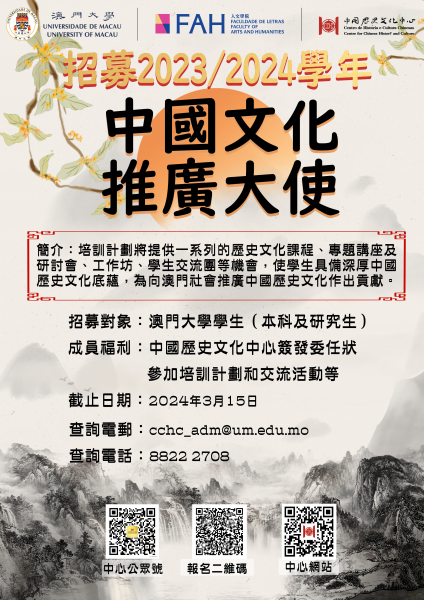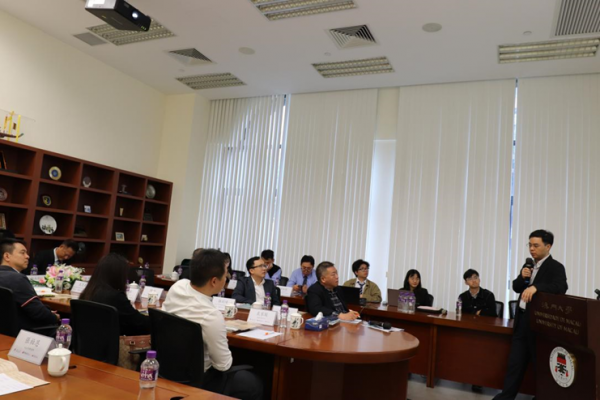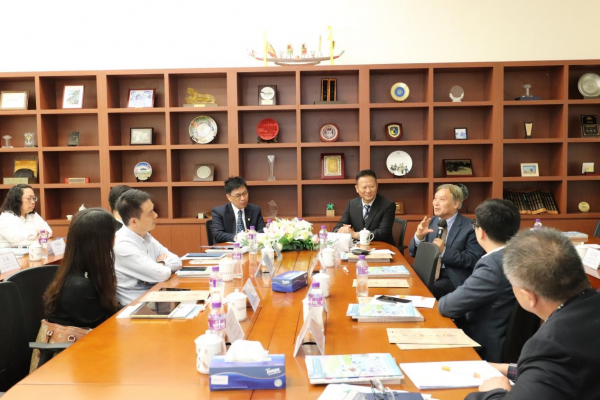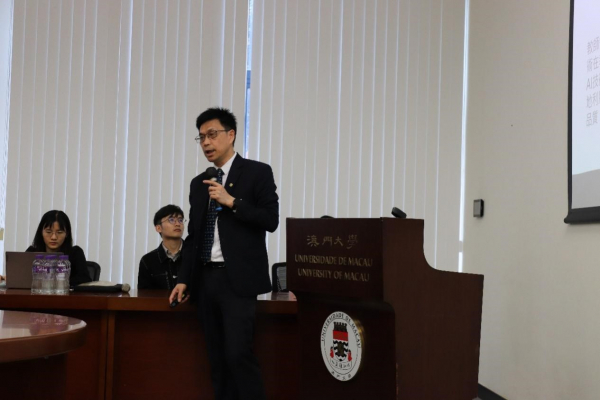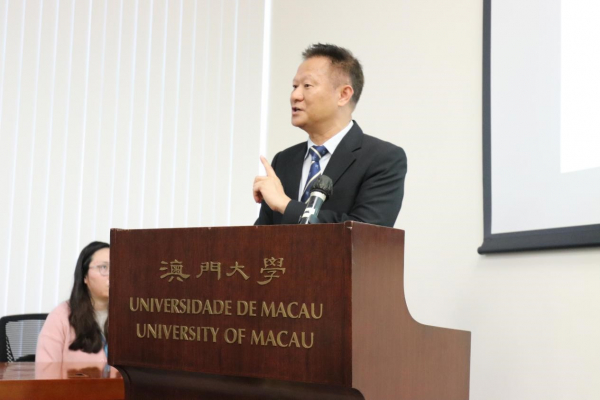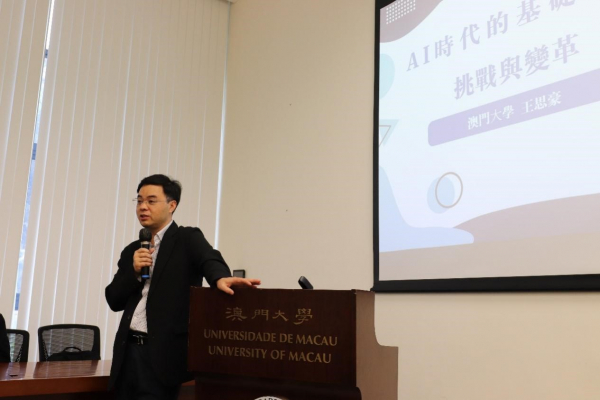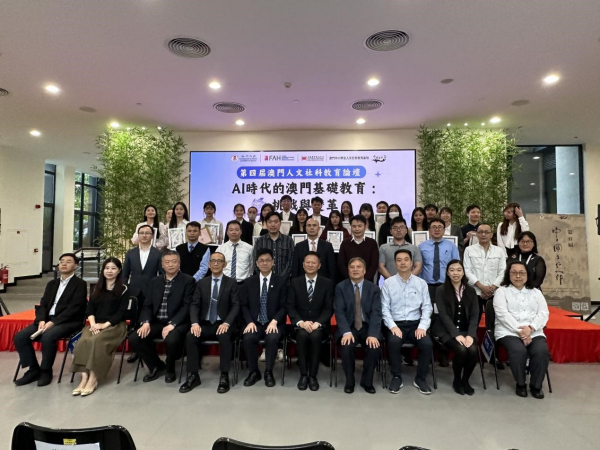In 2023, to better facilitate Macao’s teachers and students in exploring Mainland China and awaken a sense of national memory, as well as to strengthen the correct perspectives on history, the nation, and culture among Macao compatriots, five study tours were organized by the Centre for Chinese History and Culture at the University of Macau. These tours aimed to enhance national identity, ignite national pride, and, through exchange and cooperation, foster friendships and consensus between teachers and students from both regions. The groups also engaged in discussions about future development directions and cooperation opportunities as part of these cultural exchange activities in Mainland China.
From September 30 to October 4, 2023, the “Guangxi · Baise Red Culture Study Tour,” organized by the Center for Chinese History and Culture at the University of Macau, was successfully carried out. The group visited Baise and Guilin in Guangxi, exploring historical sites such as the Baise Uprising Memorial Park, the Guangdong East Guild Hall, Elephant Trunk Hill in Guilin, and the Longji Rice Terraces. Through these visits, participants gained a deep understanding and experience of the essence of Guangxi culture, profoundly grasping the challenges faced in the exploration of China’s revolutionary path and reflecting on the enduring legacy of its historical and cultural heritage.

On December 8, 2023, the “Patriotism for Macau · Passing the Torch” Zhuhai Historical and Cultural Study Tour, organized by the Center for Chinese History and Culture, visited Zhuhai. Seventeen teachers and students of the study tour visited Zhuhai’s ancient villages, including Jiexiazhuang, the Luyi Hall architectural complex, and the Yang Pao’an Memorial Hall. In the atmosphere enriched by the history of overseas Chinese residences, Southern Song heritage, and Lingnan cultural charm, participants learned about and inherited the culture of overseas Chinese communities and grasped the patriotic spirit of overseas Chinese. At the Yang Pao’an Memorial Hall, they were deeply moved by the revolutionary predecessors’ unwavering pursuit of justice and truth, their selfless dedication to the revolutionary cause, and their deep love for the country.


From December 8 to 10, 2023, the “Lingnan Culture” Advanced Workshop for Hong Kong and Macau Students, co-hosted by the Center for Chinese History and Culture and St. Joseph’s Diocesan College (Fifth School), was held in Guangzhou. Twenty-five teachers and students from St. Joseph’s Diocesan College (Fifth School) visited historic sites such as the Guangzhou Peasant Movement Institute, the Tomb of the Nanyue King, the site of the 3rd National Congress of the Chinese Communist Party, and the Guangzhou Uprising Memorial Hall. They also attended a lecture at Jinan University by the university’s Institute of Hong Kong and Macau History and Culture. Through these on-site visits and expert lectures, participants gained insights into the core spirit of revolutionary culture and the vibrant diversity of Lingnan culture.


From December 16 to 21, 2023, the “Seeking Roots · Remembering the Past” Red Culture Study Program, co-hosted by the Center for Chinese History and Culture and Nanchang University, took place. After attending six online lectures, more than ten teachers and students from the University of Macau embarked on a six-day field study. They visited sites such as Bayi Square, the August 1st Uprising Memorial Museum, the Tengwang Pavilion, and Nanchang University’s History Museum. They also traveled to the revolutionary base in Jinggangshan, where they profoundly experienced the red, green, ancient, and golden cultural heritage of Jiangxi.


From December 20 to 25, 2023, the “Guizhou · Zunyi Red Culture Study Camp” was co-organized by the Center for Chinese History and Culture at the University of Macau, with the support of the Liaison Office of the Central People’s Government in the Macau Special Administrative Region. Thirty-six teachers and students from the University of Macau visited various sites over five days, including the China Miao Culture and Art Museum at Xijiang Qianhu Miao Village, the Memorial of the Red Army’s Four Crossings of the Chishui River, the Xifeng Concentration Camp, the Zunyi Conference Site, and Qingyan Ancient Town. Through these visits, participants learned the spirit of the Long March, gained knowledge of the long history of the Miao people, and experienced the unique characteristics of Miao culture.


Nearly 100 teachers and students participated in these five study tours. The journeys were rich in experiences, and the memories were precious. The study groups returned with beautiful friendships and a wealth of knowledge. These activities promoted academic exchanges and cooperation between Macau and Mainland cities, advanced Macau’s education sector and the preservation and development of local culture, and further expanded the influence of Chinese history and culture. They deepened participants’ understanding and recognition of Chinese culture and broadened its influence.
